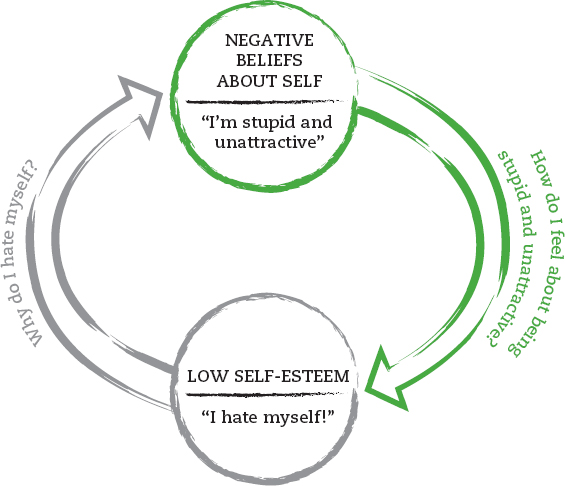Self-Esteem
Self-esteem is the overall value, positive or negative, that we assign to ourselves. Whereas self-awareness prompts us to ask “Who am I?” and self-concept is the answer to that question, self-esteem is the answer to the follow-up question, “Given who I am, what’s my evaluation of my self?” When your overall estimation of self is negative, you’ll have a meager sense of self-worth and suffer from low self-esteem. When your evaluation of self is positive, you’ll enjoy high self-esteem.
Your self-esteem strongly shapes your interpersonal communication, relationships, and physical and mental health (Pyszczynski, Greenberg, Solomon, Arndt, & Schimel, 2004). People with high self-esteem report greater life satisfaction, communicate more positively with others, experience more happiness in their relationships, and exhibit greater leadership ability, athleticism, and academic performance than do people with low self-esteem (Fox, 1997). High self-esteem also helps insulate people from stress and anxiety. (Pyszczynski et al., 2004). By contrast, low self-esteem can spawn a destructive feedback loop, as depicted in Figure 2.1.
